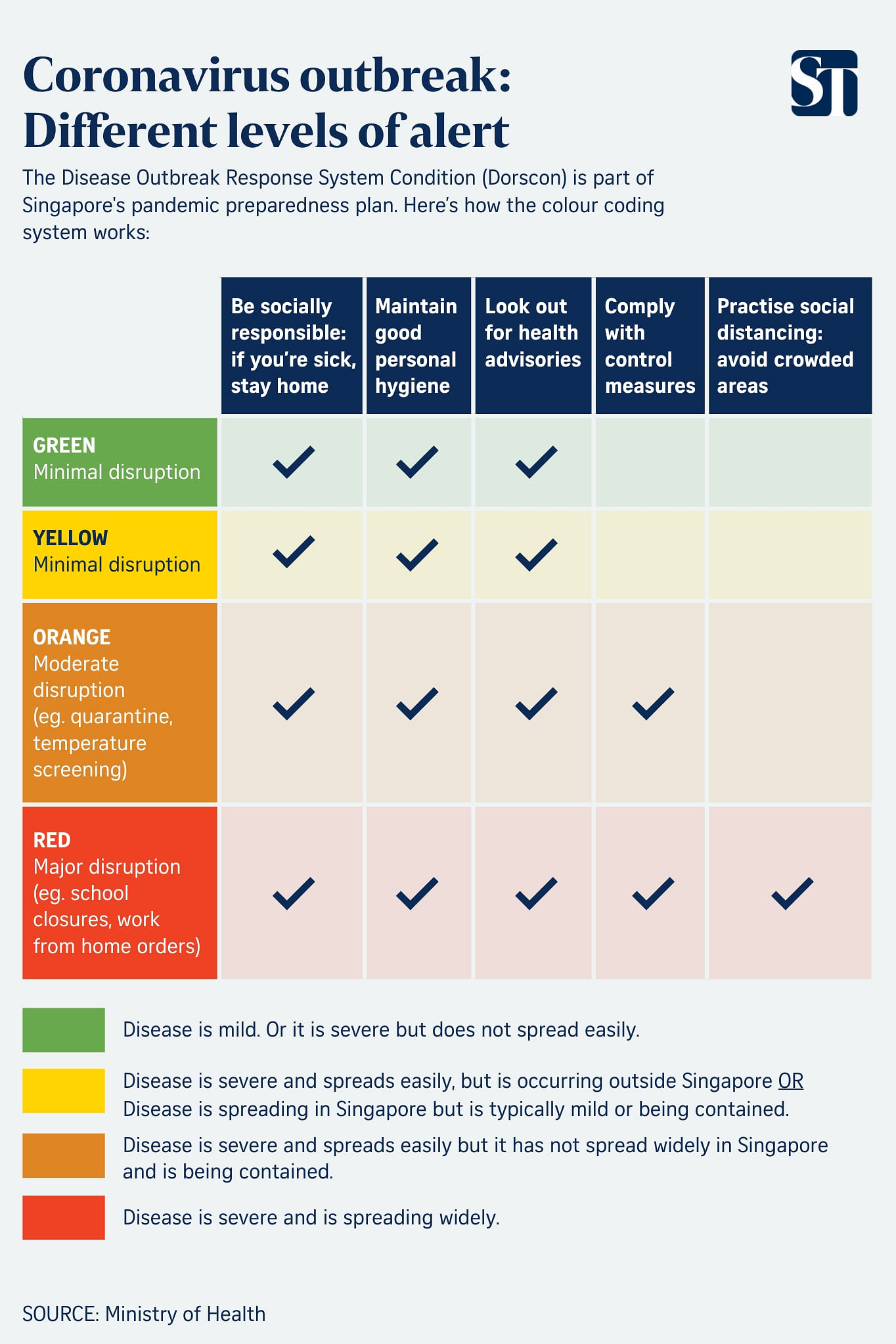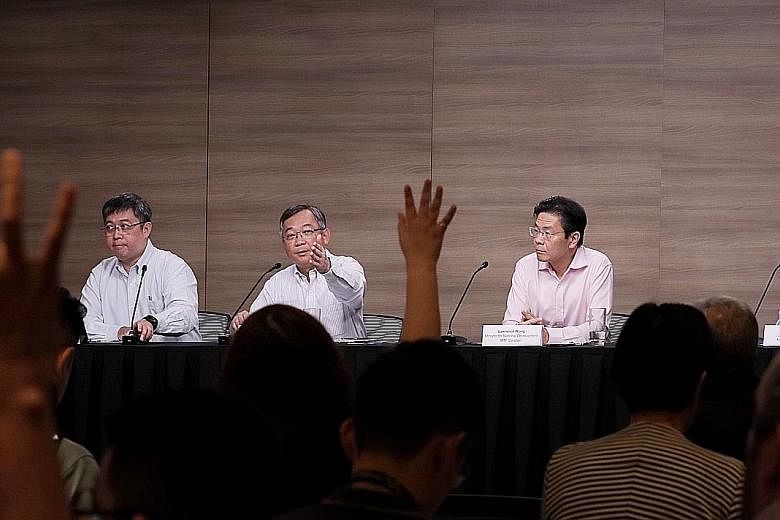Singapore has stepped up its response to the coronavirus outbreak to code orange because of heightened risk, said the Ministry of Health (MOH).
This is because there are now four cases of infection with no known links to China or people already infected, which means the disease may be spreading in the community.
Under the Disease Outbreak Response System Condition (Dorscon), the orange alert means the outbreak is deemed to have moderate to high public health impact.
Health Minister Gan Kim Yong said yesterday: "As a response to local cases without any links to previous cases or travel history to China, we have stepped up our level."
With Singapore now in code orange, MOH said yesterday that it is introducing additional mea-sures "to minimise the risk of further transmission of the virus in the community". The emphasis will now be on "aggressively trying to stop or limit further spread", according to MOH's pandemic readiness and preparedness plan.
Mr Gan noted that "many of the measures in 'orange' are already in place".
The different colours in the response levels therefore form a continum, rather than discrete levels, with measures that could be stepped up - or reviewed - in response to how the virus outbreak plays out in the weeks ahead.
For now, the new measures to be implemented are:
• Event organisers are advised to cancel or defer non-essential large-scale events. Those who choose to continue should take additional precautions.
• Carry out temperature checks.
• Look out for respiratory symptoms such as cough or runny nose, and deny entry to people who are sick.
• Ask participants to declare travel history to China.
• Ensure the venue is well ventilated with enough facilities for hand washing.
• Increase frequency of cleaning of commonly used areas.
• Maintain a registration list of participants if possible.
• People who are on leave of absence should not attend such events.
• Employers are urged to require staff to conduct regular temperature-taking, at least twice a day. Anyone with a fever should see a doctor immediately. If their temperature is above 38 deg C, they should not be at work. Staff should also be checked for cough or runny nose.
• Companies should step up their business continuity plans, which may include asking employees to telecommute or segregating them into teams.
• MOH will implement temperature screening and closer controls of entry points into hospitals. Patients with pneumonia will be separated from other patients to reduce risk of transmission.
• Schools will immediately stop all inter-school and external activities till the end of the March school holidays. This includes the National School Games, learning journeys and camps. Primary school teachers will take pupils to toilets to wash their hands before recess and snack breaks. Secondary school students will be reminded to do so.
• Pre-schools and eldercare facilities will limit the number of visitors to their premises.
These reflect measures Singapore had implemented during the Sars outbreak. It is only the second time Singapore has activated code orange. The first was for the swine flu (H1N1) outbreak in 2009.
MOH said that all its measures will be effective only if people play their part. Mr Gan added: "We are closely monitoring the situation and will further ramp up measures if necessary."

But it will all depend on how the situation evolves. Mr Gan said: "If we are able to contain the cases, determine the sources of the cases, and those we could not determine have recovered and (are) discharged, we will consider stepping back to 'yellow'."












